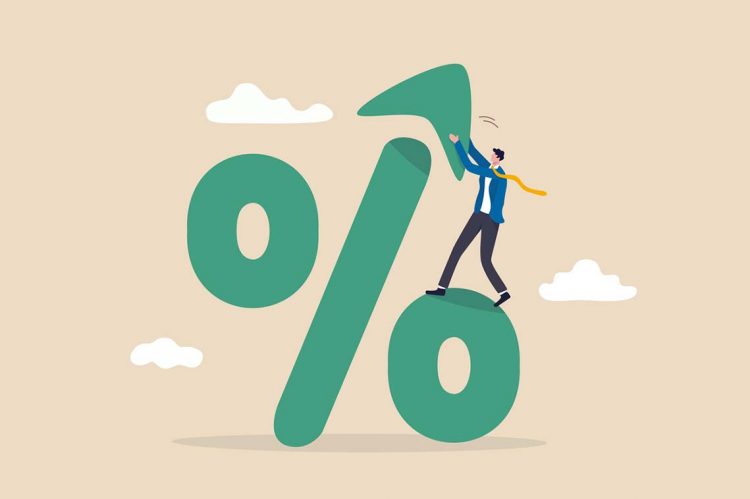They’re still going up. The 30-year fixed-rate mortgage (FRM) averaged 5.81% this week, up from 5.78% last week, according to the latest Primary Mortgage Market Survey® (PMMS®) released by Freddie Mac Thursday.
Key points:
- 30-year fixed-rate mortgage averaged 5.81% with an average 0.8 point as of June 23, 2022, up from last week when it averaged 5.78%. A year ago at this time, the 30-year FRM averaged 3.02%.
- 15-year fixed-rate mortgage averaged 4.92% with an average 0.9 point, up from last week when it averaged 4.81%. A year ago at this time, the 15-year FRM averaged 2.34%.
- 5-year Treasury-indexed hybrid adjustable-rate mortgage (ARM) averaged 4.41% with an average 0.3 point, up from last week when it averaged 4.33%. A year ago at this time, the 5-year ARM averaged 2.53%.
What the experts are saying:
“Fixed mortgage rates have increased by more than two full percentage points since the beginning of the year,” said Sam Khater, Freddie Mac’s chief economist. “The combination of rising rates and high home prices is the likely driver of recent declines in existing home sales. However, in reality many potential homebuyers are still interested in purchasing a home, keeping the market competitive but leveling off the last two years of red-hot activity.”
Realtor.com® Manager Of Economic Research, George Ratiu, commented, “The Freddie Mac fixed rate for a 30-year loan retreated after last week’s 55 basis point jump, following the slide in the 10-year Treasury. Investors moved toward safer assets on heightened recession worries, following Federal Reserve Chairman Powell’s congressional testimony in which he highlighted that the central bank’s rate hikes could lead to an economic downturn. The Fed seems fully committed to reining in the pace of runaway inflation, which has been leaving Americans with fewer dollars in their pockets month after month. With gasoline prices around $5 per gallon, daycare costs up by double-digits and food expenses rising, consumers are cutting back on retail spending. With pressures to return to offices mounting, discretionary spending is likely to see further pullback in the months ahead.
“Mounting financial pressures are compounding the ongoing affordability crisis in real estate markets. Rents and home prices continue to rise at double-digit rates. For buyers of a median-priced home, the one-two punch of record-high prices and rising interest rates has pushed the monthly mortgage payment to about 60% more than last year, tacking on over $700 to the cost of financing.
“The silver lining is that housing is clearly transitioning toward a post-pandemic new normal. While rents hit a new record high for the 15th consecutive month, the pace of growth is slowing. Home price gains are also slowing as a growing number of home sellers are boosting the supply pipeline. Market prices will continue adjusting to a smaller pool of qualified buyers and higher financing costs. The move from an overheated real estate market toward a more sustainable one will take some time. The upside is that eventually we should see a healthier environment with more options and better value for many buyers,” Ratiu concluded.











